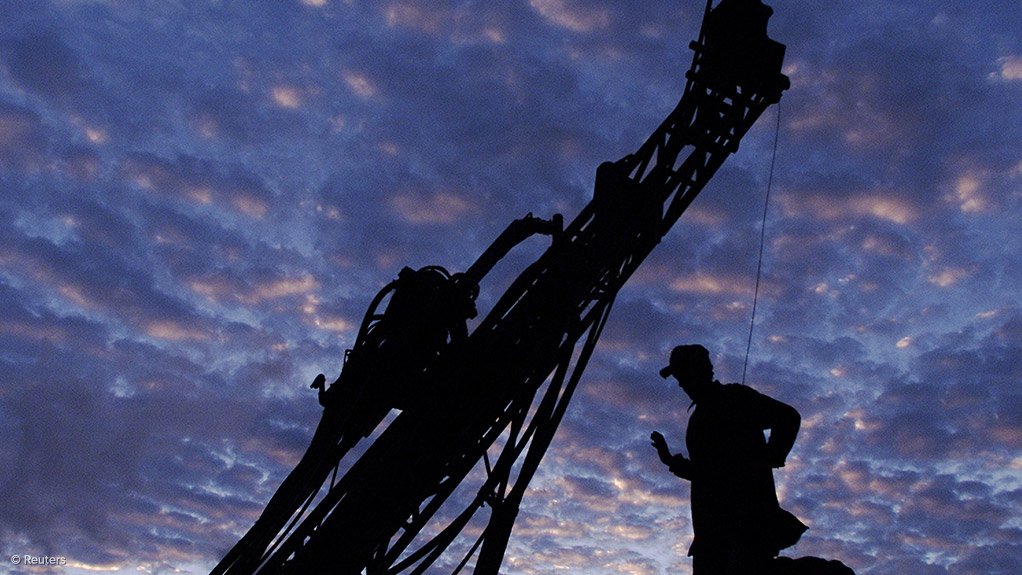Mining companies suffer $70bn in impairment losses – report
JOHANNESBURG (miningweekly.com) – A recent survey revealed that major global mining companies had suffered impairment losses of $70-billion in 2013/14, reflecting the impact of the current low commodity price cycle.
The ‘Mining Financial Reporting Survey 2014’, compiled by financial services firm KPMG, further revealed that companies had overpaid for mining investments in the past.
KPMG partner Daniel Hooijer said the fact that 80% of the 25 companies surveyed recorded an impairment of goodwill and/or mining assets in 2013/14 – compared with only 45% of companies surveyed in the 2012 survey – indicated that the 2013 financial year was a challenging one for mining companies.
Survey participants had included mining majors such as Anglo American, Barrick Gold, BHP Billiton, Glencore, Gold Fields and Rio Tinto.
The 2014 survey focused on the key issues currently facing mining companies in an increasingly challenging regulatory and operating environment.
“The increase in impairments is not owing to new or changed reporting requirements. What has changed is the focus on cash generation and the economics around mining,” commented Hooijer.
Mining groups were more explicit about the reasons for the impairment of goodwill on mining assets: 12 companies cited low commodity prices and three attributed their impairments to market capitalisation versus carrying value of asset shortfalls.
Most companies attributed the underlying reasons for impairment to factors specific to assets such as changes to mine plans, abandonment, project suspensions or delays and increasing operating and capital costs. According to the survey, these underlying causes have led the investment community to demand more comprehensive disclosure of the cost of production.
KPMG partner: head of mining in Southern Africa Jacques Erasmus highlighted that only six of the companies that participated in the survey provided a sensitivity analysis in cases where the carrying amount of goodwill allocated to a cash generating unit was significant in comparison to the entity’s total carrying amount.
Entities were required to disclose a sensitivity analysis when a reasonable possible change in a key assumption would result in the cash generating unit’s carrying amount exceeding its recoverable amount.
In 2013, companies reporting under the International Financial Reporting Standards (IFRS) applied a new standard for accounting for stripping costs.
KPMG senior manager: energy and natural resources Pieter Fourie said the ‘IFRS Interpretations Committee (IFRIC) 20 Stripping Costs in the Production Phase of a Surface Mine’ report added value to financial statements as it enabled mining companies to capitalise the costs of production stripping in surface mining.
He noted that this was important, as it accounted for costs while stripping work was ongoing. “The standard recognises that production stripping in surface mining activity could produce two benefits: usable ore that can produce inventory and improved access to materials that will be mined in future,” he said.
Of the companies surveyed, all those with surface mining operations disclosed how they accounted for stripping cost during production. However, limited disclosures were made about the methods companies used in allocating costs between inventory and the stripping assets, with only five of the companies disclosing their allocation method. The methods disclosed were mainly based on some form of stripping ratio methodology.
One of the key concepts underlying the IFRIC 20 standard is the identification of the component of the orebody to which access was improved or gained through stripping activities. Most companies disclosed that stripping assets were amortised over the expected life of the component to which access was improved through stripping activities. IFRIC 20, however, did not provide a specific definition of the component of the orebody, which could have led to different interpretations.
Fourie also mentioned that limited disclosures were made by companies on factors they considered in determining the component of the orebody to which access has been improved through stripping activities.
An important nongenerally-accepted accounting principles measure the survey group used in their financial statements was all-in sustaining costs (AISC). All ten gold producers surveyed, disclosed AISC, leading Hooijer to ask whether the sector would omit cash costs and disclose AISC in future.
Comments
Press Office
Announcements
What's On
Subscribe to improve your user experience...
Option 1 (equivalent of R125 a month):
Receive a weekly copy of Creamer Media's Engineering News & Mining Weekly magazine
(print copy for those in South Africa and e-magazine for those outside of South Africa)
Receive daily email newsletters
Access to full search results
Access archive of magazine back copies
Access to Projects in Progress
Access to ONE Research Report of your choice in PDF format
Option 2 (equivalent of R375 a month):
All benefits from Option 1
PLUS
Access to Creamer Media's Research Channel Africa for ALL Research Reports, in PDF format, on various industrial and mining sectors
including Electricity; Water; Energy Transition; Hydrogen; Roads, Rail and Ports; Coal; Gold; Platinum; Battery Metals; etc.
Already a subscriber?
Forgotten your password?
Receive weekly copy of Creamer Media's Engineering News & Mining Weekly magazine (print copy for those in South Africa and e-magazine for those outside of South Africa)
➕
Recieve daily email newsletters
➕
Access to full search results
➕
Access archive of magazine back copies
➕
Access to Projects in Progress
➕
Access to ONE Research Report of your choice in PDF format
RESEARCH CHANNEL AFRICA
R4500 (equivalent of R375 a month)
SUBSCRIBEAll benefits from Option 1
➕
Access to Creamer Media's Research Channel Africa for ALL Research Reports on various industrial and mining sectors, in PDF format, including on:
Electricity
➕
Water
➕
Energy Transition
➕
Hydrogen
➕
Roads, Rail and Ports
➕
Coal
➕
Gold
➕
Platinum
➕
Battery Metals
➕
etc.
Receive all benefits from Option 1 or Option 2 delivered to numerous people at your company
➕
Multiple User names and Passwords for simultaneous log-ins
➕
Intranet integration access to all in your organisation





















